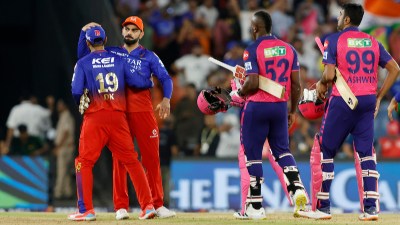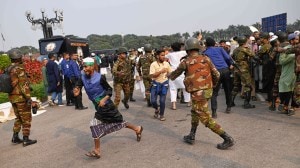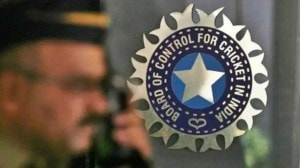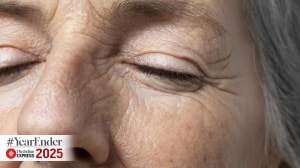Why a right wing Govt in Israel may not necessarily portend conflict with Palestinians
Israelis who voted for the fifth time in three years on November 1, now hope for a stable government that will last the full four years of its term.
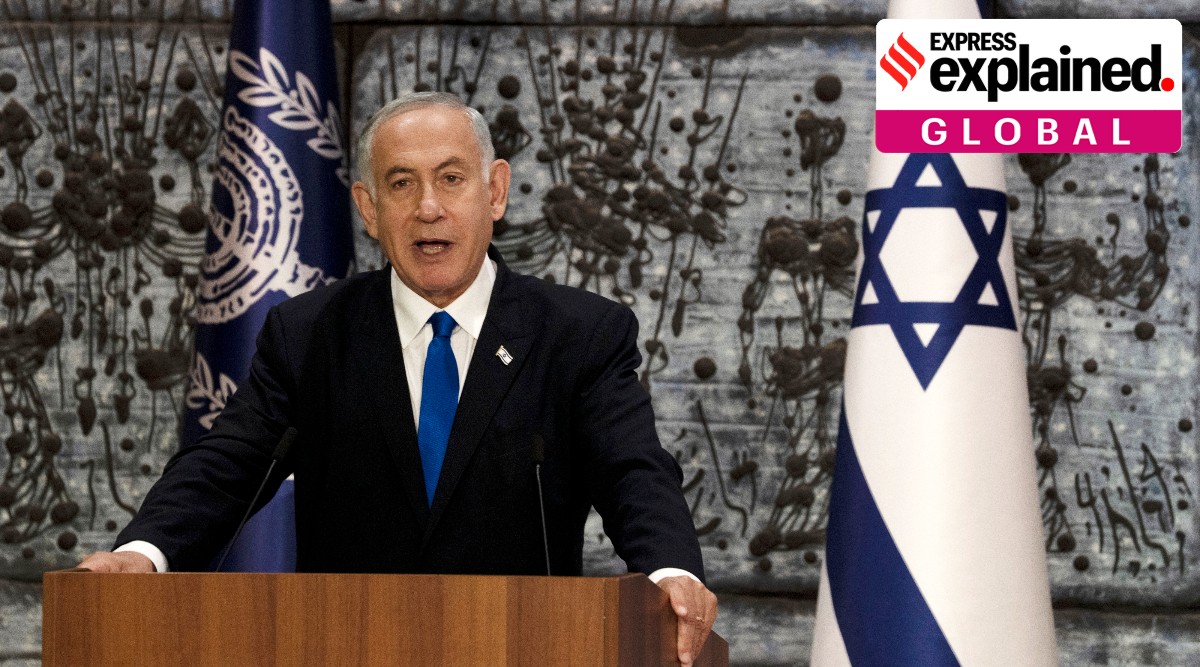 srael's Likud Party leader Benjamin Netanyahu makes a statement in Jerusalem, Sunday, Nov. 13, 2022. (AP Photo/ Maya Alleruzzo, File)
srael's Likud Party leader Benjamin Netanyahu makes a statement in Jerusalem, Sunday, Nov. 13, 2022. (AP Photo/ Maya Alleruzzo, File)
Even as many in the global commentariat apprehend a new phase of tensions and conflict under Israel’s new rightwing coalition government under Prime Minister elect Benjamin Netanyahu and his far right allies, voices on the street believe they could see less extremist action than the talk suggests.
Israelis who voted for the fifth time in three years on November 1, now hope for a stable government that will last the full four years of its term.
Netanyahu’s coalition has 64 members in the 120-seat Knesset (parliament), including 32 seats for his Likud party; 14 for the far right, ultranationalist Religious Zionism-Otzma Yehudit; and 18 for the two ultraorthodox (Haredi) parties, Shas (11 seats) and United Torah Judaism (7 seats).
The big jump in the popularity of Religious Zionism-Otzma Yehudit — from 225,000 votes in March 2021 to over 516,000 in this election — was the major takeaway from the results. The increase in votes catapulted the Religious Zionism-Otzma Yehudit to the third spot in the elections from the ninth that it occupied last year.
Otzma Yehudit leader Itamar Ben-Gvir and Religious Zionism chairman Bezalel Smotrich have often proposed violent action against Palestinians. Ben-Gvir, who is known to have once admired religious extremist Baruch Goldstein, the man who killed 29 Palestinians in the Cave of the Patriarchs massacre in Hebron in 1994, has suggested a loyalty test for Israeli Palestinians, and exile for those who fail it. The turnout of Israeli Palestinians increased by 10 percentage points to 53 per cent compared to the elections of last year.
Many left wing Liberals are dismayed by the election results. Hila Fleur, a farmer at Netiv HaAsara, the commune closest to the Gaza strip in the South that bears the brunt of rocket attacks from Hamas across the border, fears the extreme right wingers will only promote radicalisation. “I want a solution that will ensure peace for our children. I am worried about what is happening in Gaza. We want normalcy here and everywhere, we can’t do to people what was done to us in the past,’’ Hila said.
Impact of 2021 violence
But many in the Israeli street said voters were drawn not so much by the polarising rhetoric of the far right as by their promise to restore law and order and purge the streets of violent gangs.
Avishag Avinoam, a former broadcast journalist who is now making a film on children hit by terrorism, said the coalition won due to the fears fuelled by the 11-day fighting called Operation Guardian of the Walls, which followed the Hamas attack that started on Jerusalem Day in May 2021, and the riots between Israeli Jews and Arabs soon afterward.
Echoing Avinoam, Yeshaya Rosenman, a freelance journalist and student of Islamic Studies at Hebrew University, said the riots between Jews and Arabs in seven towns officially declared as mixed by the government had led to the killing of two Jews and two Arabs.
An Arab mob had burnt down the Acre-based restaurant of Uri Jeremias, a celebrity chef whose restaurant employed a large number of Arabs. “After 74 years, we thought the Arabs who form 21 per cent of the population had integrated but they continue to consider themselves Palestinians,’’ Rosenman said.
National religious political expert Asher Cohen, an associate professor at Bar Ilan University, told The Times of Israel that the May 2021 riots were “the biggest springboard” for Ben-Gvir’s party. Avishag said videos of synagogues being burnt down reopened old wounds dating back to the Holocaust.
Earlier this year in March, an Arab Israeli killed four Israeli Jews in the south of the country. A few days later, two Israeli police officers were shot dead by Arabs in Hadera, a city in the north. In response, the Israeli Defense Forces launched attacks on the West Bank, in which 15 Palestinians were killed.
Hope for a settlement
Lev Aran, former coordinator of the Israel-India Parliamentary Friendship League, said Ben-Gvir’s “rhetoric is very inflammatory but that’s how far he will go. It won’t impact the ground reality”. All sides are united in their hope for peace. Outgoing Prime Minister Yair Lapid, a Centrist, said, “Israel is above politics.”
While there is concern that hardline policies of the new government could jeopardise the very young Abraham Accords signed between Israel and the UAE, Bahrain, Morocco, and Sudan, Prof Uzi Rabi, director of the Moshe Dayan Center for Middle Eastern and African Studies at Tel Aviv University, said all Israelis, regardless of their political leanings, want a solution to the Palestine problem.
“The Abraham Accords are not the opposite of the Palestine problem. No Israeli would like to end up with one state from the Mediterranean to the Jordan river. They do not know the contours, nor does Palestine but we have to work out this issue and to that extent, work will continue.’’
A senior Indian diplomat pointed out that the accords were conceived by Netanyahu himself, and that he can be expected to build on his legacy. “Also, with the US pivoting away from the Middle East, and Iran becoming increasingly belligerent, there is a feeling among many Arab nations that an alliance with Israel would help them fight their battle.’’
- 01
- 02
- 03
- 04
- 05


